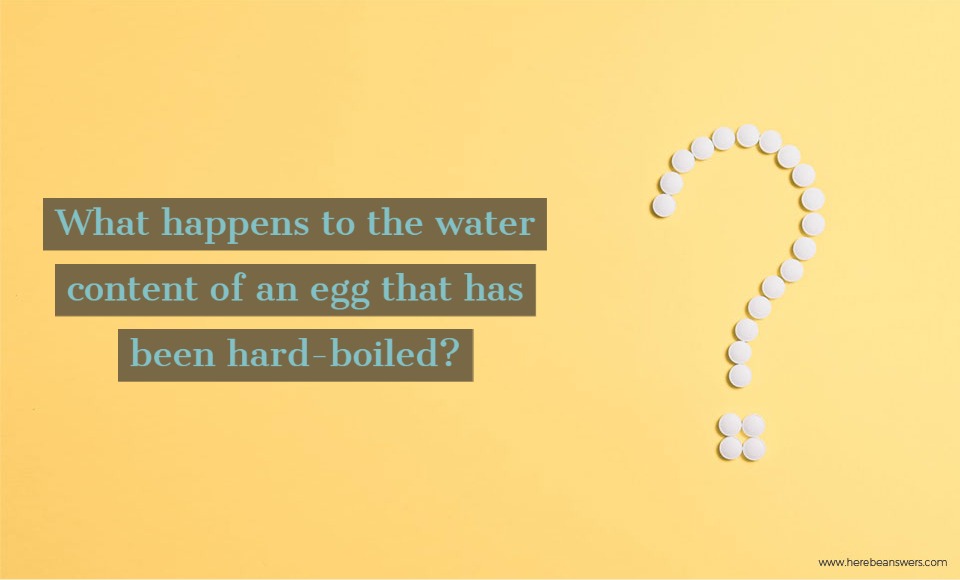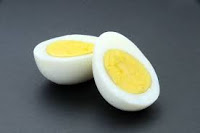Boiled eggs are usually hard-boiled chicken eggs. Typically they are boiled using water. There are two types of boiled eggs: Hard-boiled eggs and soft boiled eggs. Hard-boiled eggs are cooked so that the egg yolk and egg white both solidify, while the soft boiled eggs may leave the yolk and sometimes the white to be partially raw and liquid. Boiled eggs are a regular part of breakfast around the world, primarily because they contain proteins, calcium, and other essential nutrients to start the day.
Furthermore, eggs are laid by many species, including reptiles, mammals, fish, and amphibians. However, not all of them are edible. In addition to the consumption of chicken eggs, quail and duck eggs are also used. The majority of the world’s egg demand is met by chickens that are kept on farms. These chickens are fed and grown in thousands to meet the ever-rising demand across the globe.
Besides the boiling water immersion method, there are a couple of other ways as well to boil eggs, such as coddling and steaming. Even though while we often tend to hard boil eggs and once they are done, we do not seem to find any water content inside. It is a question asked by many, and we will try to answer it.
Most of an egg white is water and most of what isn’t water is protein. When you cook the egg white and it becomes opaque and semi solid, it’s not because you dehyrdrated the egg white, but rather because the proteins were denatured and have unfolded and refolded in such a way as to trap the water it contains in a sort of protein prison creating a gel mesh which keeps the water from running out.
By continuing to cook the egg, you can indeed make the folded protein mesh “squeeze” the water out of the eggs. This is most commonly seen in overcooked scrambled eggs, which get rather tough and then just release their water to pool in the pan or on the plate once too much heat has been applied.
Eggs are an important part of daily diets. They are packed with important vitamins and minerals that are required by the body on a daily basis, let us briefly discuss them as well.
Health benefits of eggs
Cholesterol and Fat
Calories found in eggs come mostly from the yolk. Even though people on a low-cholesterol diet should reduce egg consumption, but 27% of the fat found in eggs is saturated fat. Eggs primarily consist of water and proteins and do not contain cholesterol and close to zero fat.
Rich in proteins
Eggs are rich in proteins, and that is why you regularly see athletes and bodybuilders consuming eggs before and after their workouts. Proteins are essential for muscle development and repair. Muscles rely on proteins to repair themselves after damage as occurred. If your body is running low on proteins, you will feel lazy, fatigued, and tired. Therefore, it is important to give your body a proper dosage of proteins on a daily basis.
Raises HDL ‘Good Cholesterol
HDL stands for high-density lipoprotein. It is often termed as the ‘good’ cholesterol. People who possess higher levels of HDL usually have a lower risk of heart diseases such as stroke. Therefore, eating eggs is a great way to increase the amount of HDL. According to one study, eating two eggs per day continuously for six weeks increased HDL levels by 10%.
Contains Antioxidants
One of the worst aspects of aging is that eyesight tends to get worse. However, there are several nutrients that could help maintain eye health. Two of such nutrients are called lutein and zeaxanthin. These are powerful antioxidants that accumulated in the eye’s retina. Studies have suggested that regular intake of these antioxidants can reduce the probability of cataracts and muscular degeneration. Egg yolks contain a huge amount of lutein and zeaxanthin. According to one study, eating 1.3 egg yolks per day for 4.5 weeks increase the levels of lutein in blood by 28-50% and zeaxanthin by 114-142%.

